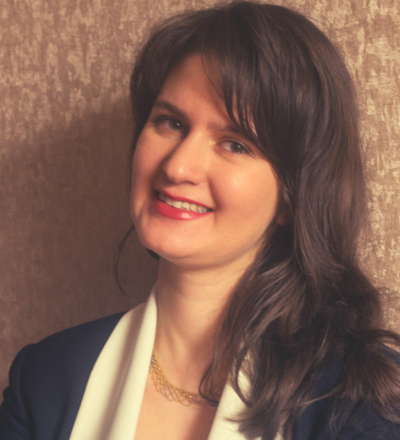I am Elchin Jafariyeh Yazdi, a PhD student at the University of Groningen. I am 30 years old and my research project is part of ISPT’s Cell-U-Value initiative that focuses on the development of sustainable bio-based and sustainable chemicals out of tertiary cellulose.

Background
I have graduated with a M.Sc. in chemical engineering from Sahand University of Technology in Iran. During my graduate studies, I synthesized a modified heterogenous Ziegler-Natta catalysts for ethylene polymerization. Later, I also had the opportunity of working as a researcher at the Institute of Polymeric Material (IPM) to further study the characterization and properties of produced catalysts and polyethylene.
Functional value chain
The acute climate challenge in terms of enhanced CO2 emission along with the depletion of natural fossil resources, obliges industries to search for a renewable carbon source as the sustainable alternative feedstock. Biomass is the most promising renewable resource that is available to be used as fuel and chemicals.
KNN Cellulose B.V. is one of the partners of my research project. They derive tertiary cellulose from the waste and other residual streams, named Recell®. We are building a functional value chain of this tertiary cellulose into a market quality bio-based chemical, both economically and environmentally.
The functional glucose production process from tertiary cellulose to a pilot scale of 10 ton/year, is a challenging initial step. The second phase of this project is the feasibility evaluation of the acetic acid conversion from tertiary cellulose.
Throughout the next four years, I expect to be well trained as an independent researcher as well as a chemical engineer. Dealing with the modeling and optimization of the chemical processes – especially in pilot scale – will provide me with a valuable insight for the design and troubleshooting of these processes. I would also like to be well experienced in terms of academic teaching and coaching skills.
Research
Parallel to the piloting part of the initiative, I will investigate the conversion of tertiary cellulose in the first and main phase by using both enzymatic and chemo-catalytic acid hydrolysis approaches. Enzymatic hydrolysis using cellulases results in high selectivity and purity of glucose under mild reaction conditions. However, it suffers from high enzyme costs and low reaction rates. Good catalytic activities for hydrolysis of cellulose are possible using cheap liquid acid catalysts (e.g., HCl).
Nonetheless, issues such as reactor corrosion, waste treatment, and severe glucose degradation under high temperatures (in the case of using dilute acids), need to be well addressed. Hydrolysis using solid acid catalysts (e.g., metal oxides, carbonaceous acids) represent a good choice in terms of catalyst recyclability and reusability.
However, the reaction efficiency, selectivity and long-term catalyst stability still need to be improved or examined. Therefore it is important to investigate the performance and economics of enzyme, liquid and solid acid-catalysed hydrolysis of tertiary cellulose to glucose. An important focus lies on the influence of tertiary cellulose composition, crystallinity and pre-treatment on the reaction performance, and the reuse and long-term stability of enzymes and solid acid catalysts.
The conversion of tertiary cellulose, or glucose derived thereof, to organic acids (among others acetic acid), is focused on the second phase. We will be investigating and optimizing the microbial fermentation or chemical conversion to produce organic acids (in particular acetic acid). Validation and optimization of the downstream processing steps on the laboratory scale, including especially the solvent recovery and purification of organic acids, will be some of the challenges we have to overcome.
Developing sustainable approaches
Today, the development of sustainable and green approaches in design and manufacturing of chemicals to reduce the environmental impacts of industries is one of the most promising and cutting-edge research. So to achieve this purpose, new researchers should address this issue. The research project that I will be working on well fits to this approach.
Having a look at the leading research topics, performed recently in chemical engineering field, motivated me to look for a research area in the biotechnology that is also in regards with my educational background in catalysts design. This project also fits well with my own eco-friendly lifestyle.
I came to know the Institute for Sustainable Process Technology while working on my PhD project. I was so excited to see such an active platform that aims to connect stakeholders, governmental bodies and also research scientists in order to establish a carbon neutral process. I hope my research project would be contributing to this honorable community.
Acknowledgement
This project is co-funded with subsidy from the Topsector Energy by the Ministry of Economic Affairs and Climate Policy.